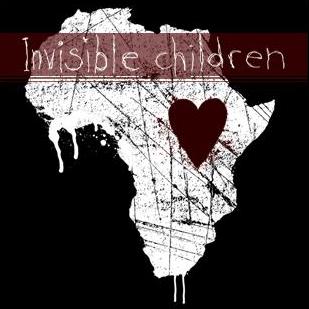Northern Uganda has not known peace for the past twenty-three years. Thousands of people have been displaced, murdered, raped, mutilated and abducted. Yet this conflict has been ignored by most of the world. Invisible Children, an organization dedicated to raising awareness of the conflicts in the region and playing an active role in the promotion of peace through education, films, media and activism, aims to change that situation.
On the night of September 20, students gathered in Oliva Hall in Cummings to view Invisible Children’s latest documentary, Tony. This visit was Invisible Children’s first at Connecticut College. Their representative “roadie,” the term used by Invisible Children for the young adults who travel all over the country to advocate for change and spread the movement’s message, expressed her excitement to be here. “So we’ve never been here before, and I know there’s a prominent strain of religious groups and also social justice groups, so I thought this would be a great thing for Invisible Children and for your campus too.” Alanna Jammer 14, head of Conn’s Human Rights Now club, was also enthusiastic about the event. “Invisible Children is a wonderful organization that helps raise awareness for child soldiers in Uganda… and we’re hoping to bring more organizations like Invisible Children to Conn this year.” Indeed, this event offered students a chance to educate themselves and, more importantly, to discover ways to advocate for peace.
Tony did not delve into the history of the conflict, but instead focused on the founding of Invisible Children, its history, and how it achieves its goals, while offering insight into the plight of Ugandans. The conflict in Northern Uganda originated in the 1980s, when a man named Joseph Kony took control of a rebel army and created the Lord’s Resistance Army (LRA). Since then, the LRA has been continually at war with the Ugandan government. Kony relies heavily on the abduction of children to fill his army; these child soldiers constitute about 90 percent of the LRA. The abducted children are indoctrinated and forced to carry out Kony’s vision. The LRA has no qualms about forcing children to kill and maim innocent people, burn down villages and homes, and wreak havoc among the civilian population.
For those children who have escaped the LRA, it is necessary for them to constantly be on their guard. Many children in rural areas leave their homes at night and walk, often many miles, to the nearest town in an effort to be safe from abduction. These children are known as “night commuters.” The LRA has now moved out of Northern Uganda, but it continues to operate in the Democratic Republic of Congo, the Central African Republic, and southern Sudan. Clearly the problem has not gone away.
Tony follows the story of Laren Poole, Jason Russell, and Bobby Bailey’s 2003 trip to Uganda, their interactions with an endearing Ugandan boy named Tony, and how it inspired the creation of Invisible Children. Since its humble beginnings, Invisible Children has evolved into a large organization that effectively advocates for peace and stability in Uganda and for the promotion of the education of Ugandan children.
The film did an excellent job demonstrating effectiveness of Invisible Children’s strategy. One of their most successful endeavors is the Early Warning Radio Network, which connects villages so they can share information and warn others of possible attacks through radio communication. FM broadcasts and fliers encourage LRA defection. Invisible Children is also heavily involved with the promotion of education in Uganda. Their Legacy Scholarship Program provides scholarships and mentoring for children in secondary schools and universities in Northern Uganda. The mentors, Ugandans who are trained to support, teach, and serve as a role model for peers and students, are a key component of the program and its mission to stop the cycle of violence.
After the movie ended, one such mentor, Brenda, spoke about her involvement with the program. Originally from Uganda, she grew up during the war and was orphaned in 2002 along with her two brothers. Their struggle encouraged her to reach out to others. “I grew up dealing with the LRA war, and so I faced a lot of challenges, just like the people in Congo now do, and that is why I made up my mind to come from Uganda and advocate for the people of Congo, and tell people more about what is happening in Congo and different ways of ending that war in Congo.”
Students play an enormous role in the promotion of peace. Through demonstrations, protests, advocacy and activism, it is possible to truly make a difference. •










